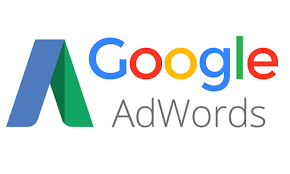
DSC discusses the Tories use Google Ads.
The Conservatives have worked out that anyone searching for ‘Pre-Budget Report’ or ‘Treasury’ will stumble upon their website
The Conservative Party has obviously learned something about online marketing from its friends at Google. The party seems to have been busy making sure that anyone using the internet search engine to find out about Alistair Darling’s pre-Budget report will quickly find themselves reading George Osborne’s views on the state of the economy instead.
The Conservatives are making use of Google’s AdWords platform to make sure that anyone searching for “Budget”, “Pre-Budget Report” or “Treasury” will see their website prominently displayed.
AdWords allows advertisers to bid for certain keywords in an online auction process. When those keywords are used as search queries, the system displays adverts either above or on the right hand side of Google’s search results.
Clicking on an advert results in the advertiser – in this case the Conservative Party – paying the search engine a small amount for that ‘click’.
The more people ‘click through’, the more money Google gets. As a result the experiment could backfire if the Conservative Party has not put a cap on the size of its AdWords budget and enough people click on its adverts. Natural search marketing, however, does not produce such potentially high costs.
Types of search Intent.
A search for “Treasury” for instance, produces a “sponsored link” on the right hand side from www.conservatives.com. Aimed at the tech-savvy market, the advert’s text adds “Pre-Budget Report 09. New £440m “phone tax” to be introduced by Labour” and links through to a news story on the party’s website entitled “a Labour election victory would mean higher taxes and interest rates”.
Searching for “pre-budget report” meanwhile, produces an advert in pole position in which the Conservatives proclaim “Labour fail to abolish small corporation tax rise”.
But the Conservatives are not the only party to have been buying up AdWords, three adverts below in the same search the Labour Party is busy advertising its own www.labour.org.uk/pbr website with an advert that says “A Man With A Plan. Protect schools, police and the NHS. Halve the deficit fairly in 4 years”
A search for “Alastair Darling” on Google produces an advert for www.labour.org.uk/pbr. The advert includes the text “A Fair Plan for Britain. Labour to halve national debt in 4 years. See how it affects you”.
But again the Tories appear to have spent more money than Labour with their advert appearing in the top spot, above the Labour Party’s contribution, with an advert that reads “Labour failed to deal with the deficit today, so taxes up tomorrow”.
The Conservatives have become increasingly web-savvy after David Cameron’s initially faltering steps with his WebCameron online diary three years ago and there are close ties between the party and Google.
The likely next prime minister’s director of strategy, Steve Hilton, is married to Rachel Whetstone, Google’s head of global public policy and communications, and one-time Michael Howard apparatchik. The pair were godparents to Cameron’s late son, Ivan.
The Conservative and Labour Party’s use of pay-per-click advertising will quickly put them in a high position on Google searches. However, investment and time spent on natural search marketing will ensure that they are on the first page of the organic search results, and this is the case for any website.
Holding a high ranking on the natural search results on Google immediately creates an air of credibility and trustworthiness around a website, and this can only be a good thing for a political party.



